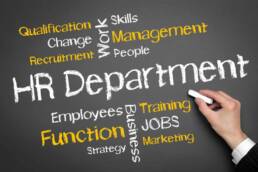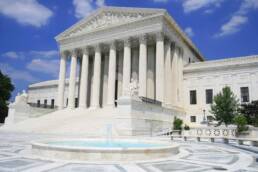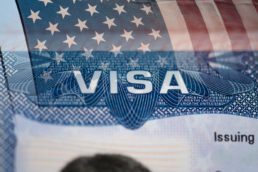Public Access File
When employing a foreign worker in H-1B status, there are a number of Department of Labor (DOL) regulations which must be carefully adhered to. Importantly, H-1B employers are required to maintain a file that is available for public inspection. This is referred to as the “Public Access File” (PAF). A complete PAF is a vital component of employment-related immigration compliance. For example, employers must make documentation relating to any and all Labor Condition Applications (“LCA” or “Form 9035”) available in the PAF. This must be done within one working day after the date of filing the LCA with the DOL. Any member of the public may request access to the file, and the employer must make the file available to a requestor within one working day of the request. For reference, an LCA is a form that is filed with the DOL, which requires employers to attest that certain H-1B requirements have been satisfied. The LCA must be signed by an employer and certified by the U.S. Department of Labor before an H-1B petition can be filed.
Berardi Immigration Law provides clients with all starting documentation for a PAF, along with clear directions on maintaining these documents for compliance. For more information, please visit our website.
Filing Amended H-1B Petitions
Long-standing regulations require employers of H-1B workers to file amended H-1B petitions whenever there is a material change in the terms and conditions of employment, or changes that effect eligibility of the employees H-1B status.
In August of 2015, U.S. Citizenship and Immigration Services (USCIS) issued final guidance (Matter of Simeio Solutions LLC) specifying the requirements for filing amended H1B petitions based on changes in the worksite location of H-1B employees. In short, if an H-1B employee moved to a new place of employment not covered by an existing, approved LCA/H-1B petition on or after August 19, 2015, the petitioner must file an amended or new petition before an H-1B employee starts working at the new place of employment. Once the amended petition is filed, the H-1B employee can immediately begin working at the new location.
Here are situations when an Employer DOES NOT need to file an Amended Petition:
- A move within an MSA: If your H-1B employee is moving to a new job location within the same metropolitan statistical area (MSA) or an “area of intended employment,” a new LCA is not required. However, an employer must still post the original LCA in the new work location within the same MSA or area of intended employment.
- Short term placements: Under certain circumstances, an employer may place an H-1B employee at a new job location for up to 30 days, and in some cases 60 days (where the employee is still based at the original location), without obtaining a new LCA.
- Non-worksite locations: If your H-1B employee is only going to a non-worksite location, an employer does not need to file an amended H-1B petition. A location is considered to be “non-worksite” if:
- The H-1B employee is going to location to participate in developmental activity, such as management conferences and staff seminars;
- The H-1B employees spend little time at any one location; or
- The job is “peripatetic in nature,” such as situations where their primary job is at one location but they occasionally travel for short periods to other locations on a casual, short-term basis, which can be recurring but not excessive (i.e., not exceeding five consecutive workdays for any one visit, or 10 consecutive workdays for any one visit by a worker who spends most work time at one location and travels occasionally to other locations).
It is important to keep in mind that the need to file an amended H-1B petition is not limited to changes in worksite location. Any material change in an H-1B employee’s job, such as termination, layoff or a change in the beneficiary’s job duties, wages or worksite location(s), may require an employer to file an amended petition. These scenarios tend to be very complex, and it may be helpful to speak with a qualified attorney following any change to an H-1B employee’s employment. For more information, please visit our website.
The Importance of Conducting Internal Audits
Enforcement actions or audits can be carried out by various arms of the government, including U.S. Citizenship & Immigration Services (USCIS), Immigration & Customs Enforcement (ICE), and the DOL. Inquiries by one government agency will often result in inquiries or actions by another government agency, so it becomes increasingly important for companies to stay up-to-date with internal immigration policies and compliance. An employer’s failure to comply with H-1B employment regulations can have serious consequences. In some cases, the government assesses criminal penalties based on the employment of illegal workers, and in other cases the government assesses financial penalties based on paperwork compliance and/or payroll violations. In many instances, these penalties tend to be severe. For example, Form I-9 paperwork violations range from $216 to $2,156 per violation.
Contact Berardi Immigration Law today to establish your organization’s immigration compliance practices with confidence. We can provide you with strategic planning, conduct an internal audit of your existing practices, assess the potential liabilities of your current procedures, and discuss the government’s “E-Verify” program. In addition, we can help you draft internal policies that address a variety of immigration-related topics, such as I-9 compliance, PAF maintenance, how to respond to “mismatch” letters received from the Social Security Administration, and how to avoid liability under anti-discrimination and “document abuse” laws.
Ready to have Berardi on your side?
Whether you’re a business looking to hire or a professional hoping to relocate, immigration law can be complicated. But you don’t have to do it alone. Put our experience to work for you.



